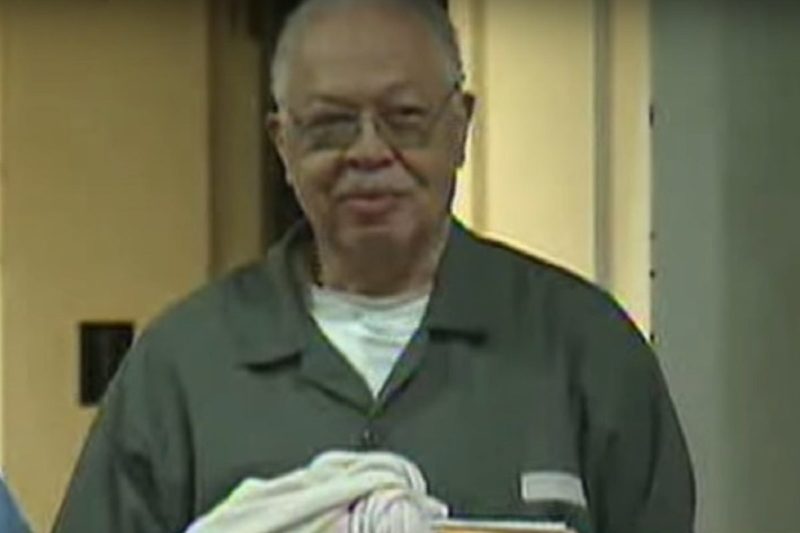The Lesson We Should Take From ‘Gosnell’
If abortion care had been treated like any other medical care, the atrocities that took place at Kermit Gosnell's medical office could have been avoided, and the women of West Philadelphia who were treated by him could have sought care from competent professionals instead.

As anti-choice filmmakers prepare their release of the newest Gosnell documentary this week, it’s vital that the rest of us focus on the important lesson from the case of Kermit Gosnell. Contrary to what the propagandists behind this film put forth, that lesson is not that abortion needs to be more strictly limited or outlawed altogether.
Rather, the real lesson of what happened with Kermit Gosnell is that abortion care needs to be treated like all other medical care. If it had been, the atrocities that took place at Gosnell’s medical office could have been avoided, and the women of West Philadelphia who were treated by him could have sought care from competent professionals instead.
The story of Kermit Gosnell, who was convicted of murder and other crimes in 2013 related to the practices at his abortion clinic, is one of a criminal whom the State of Pennsylvania ignored for years, despite many people and organizations trying to bring him to the attention of authorities. The anti-choice movement continuously claims—both in this new documentary and countless times in the past—that abortion needs to be more closely regulated in order to prevent, catch, or punish criminals like Gosnell. Listening to them, it would be reasonable to think that Gosnell was operating completely lawfully and got off scot-free. But nothing could be further from the truth, as evidenced by Gosnell’s life sentence in prison. Pennsylvania did not need to enact any new laws to reach this result: When he was ultimately arrested, the state charged him with murder, attempted murder, drug crimes, and conspiracy, all of which were already prohibited by law in Pennsylvania.
The problem in Pennsylvania was that the state failed to treat Gosnell like an ordinary medical provider and investigate his practice in the face of serious complaints. As the state’s anti-choice governor said at the time, “It happened because people weren’t doing their jobs, plain and simple.” The state’s secretary of state at the time echoed those sentiments: “Part of the tragedy of this story is that state officials, charged with protecting the public health, failed to act.”
Why did the state, in the words of the secretary of state, fail to act about Gosnell? Most likely, it was because the Republican-controlled state agencies saw abortion as a procedure performed by criminals, and saw Gosnell as someone mistreating people society didn’t value. As the grand jury report stated, “We think the reason no one acted is because the women in question were poor and of color, because the victims were infants without identities, and because the subject was the political football of abortion.” Thus, when there were complaints about Gosnell’s facility, state actors presumably didn’t feel the need to do anything because the complaints were consistent with how the state saw abortion providers as a whole. Based on the evidence, it seems as if in state officials’ minds, he was just as bad as all the other abortion providers, so there was no need to get involved with this messy issue because they wanted to avoid a controversy.
That couldn’t have been further from the truth, though. In 2010, the year before Gosnell was arrested, the complication rate from the state’s other abortion providers, who all operated within Pennsylvania’s regulatory framework, was 0.12 percent (down from the already miniscule 0.16 percent the year before). The grand jury that indicted Gosnell recognized as much, stating that these clinics “perform safe abortion procedures” and overall had “excellent safety records.”
If abortion were treated like any other medical care, the harsh restrictions which the Gosnell documentary would like to see in place—including and especially an outright ban on abortion—would never exist. The over-regulation of abortion forces many safe, responsible abortion providers to shut their doors. When that happens, history tells us that women do not stop trying to find a way to obtain an abortion. Rather, an environment is created in which criminal, rogue practitioners can thrive.
This happens for two reasons. First, abortion becomes less accessible. As economist Marshall Medoff from California State University has shown, over-regulation of abortion does not affect the demand for abortion, as women will continue to seek abortions regardless of the regulations in effect. Second, he has also shown that over-regulation does reduce the number of safe, competent abortion providers. What this means is that even though the number of women seeking abortion will be constant, there will not be enough high-quality facilities to provide safe abortions.
Who steps into that void? History shows us that unsafe or illegal providers such as Gosnell will do so. When that happens, women suffer.
Along with two other attorneys in Pennsylvania, we wrote a brief to the U.S. Supreme Court making these points in the 2015 case of Whole Woman’s Health v. Hellerstedt, involving the over-regulation of abortion providers in Texas. Justice Ginsburg directly cited our brief to make the point that is at the heart of this article. She wrote, “When a state severely limits access to safe and legal procedures, women in desperate circumstances may resort to unlicensed rogue practitioners, faute de mieux, at great risk to their health and safety.”
Justice Ginsburg has it absolutely right here. The way to prevent more Kermit Gosnells is not to introduce more extreme abortion regulations. Instead, the solution is to hold abortion providers to the same standards and laws as any other medical care professional and to regulate abortion consistent with evidence-based medicine and not political grand-standing. Doing so would be the surest way to guarantee women’s health and safety.
